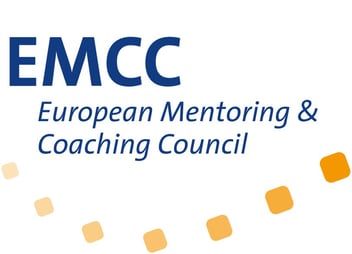In Denmark, the majority of CEOs in listed companies are male with backgrounds in economics or engineering, reflecting a far narrower leadership model than the ones suited to today’s diverse, complex and increasingly millennial-driven workforce. Nevertheless, soft skills like empathy and self-awareness can be enhanced, and executive coaching is often the most effective means to do that.
Listed in the Global Thinkers 50 ranking and author of 30 books and over 100 scientific articles, Director of the Henley Centre for Coaching, Professor Jonathan Passmore is well versed in the impact that coaching has to play in modern business. At an event in Helsinki, drawing on his academic background in organisational psychology and 30 years in coaching, he reviewed the latest research to reveal some valuable insights.
Addressing an attentive audience, he asked what constitutes good coaching and encouraged delegates to think critically about organisational performance and the best interventions for executive leaders and teams.
Passmore takes as his starting point the late 80s approach to coaching, in some parts of the world referred to ‘sitting-with-Nellie’. Coined in England, the expression, is used to describe poor-quality on-the-job training where an experienced worker, with no training and a potential list of bad habits, instructs a subject. While the term is colloquial, it is a fitting description of unstructured on-the-job training.
An evolving science
Coaching evolved in the 90s, among others, with Sir John Whitmore’s influential 1992 GROW model definition. Its central idea is to unlock people’s potential to maximise their performance by helping them to learn. This definition of coaching, aimed at increasing self-awareness, went through its evolution just six years later when Laura Whitworth talked about the unspoken ground rules of respect, openness, compassion, rigour and a commitment to speaking truth. Richard Kilburne, in turn, introduced a more holistic view of coaching, not just as a means to enrich the individual but also to benefit the organisation.
‘Coaching has become the fundamental driver for all workplace learning interventions, from performance appraisals to mentoring, workplace counselling and more,’ Passmore says, based on his research. ‘In addition, it is widely used in leadership development throughout all organisational levels.’
Drawing on studies held in 2014 based upon meta-analysis by Tim Theeboon investigating organisational coaching, the findings suggested again that whether in the case of face-to-face, external or internal coaching, it is a proven and effective method to ensure lasting change.
Professor Jonathan Passmore
Finding the right fit
‘Organisations should seek to maximise the impact of all learning interventions by understanding which form is best suited,’ Passmore says.
Mentoring, for example, describes a transfer of greater to lesser experience, whereas counselling is best suited to clinical intervention. Training for its part is an obvious fit for supporting necessary skills acquisition, while performance management underpins performance issues at work.
Passmore stresses that coaching should be part of the toolkit of all managers to create a coaching leadership style. While internal coaching supports both leadership development and performance, external coaching is the most effective support for leadership development at the executive level. Executive coaching is also essential in helping leaders to manage stress levels and as a sounding board for all critical issues dealt with by the management.
Passmore confirms that coaching has the most impact in creative and specialist organisations where learning and change are constants and complexity creates more questions than answers. He nevertheless emphasises the importance for all coaches to recognise and value the unique nature of their subjects and to treat each with respect.
‘Coaching is about nourishing, valuing and asking the questions nobody has ever asked for your subject to gain new insights. It’s about self-reflection and thinking on a more holistic organisation level,’ he concludes.
Learn more bout our executive coaching offering, both for individuals and for organisations.



